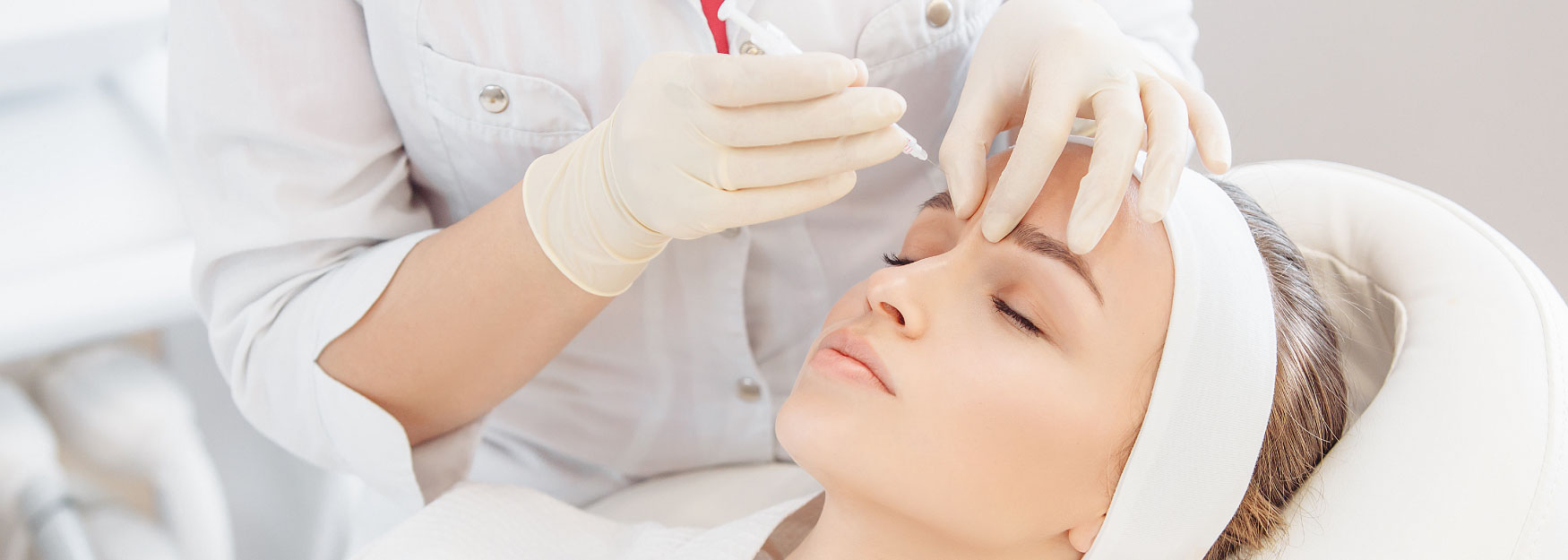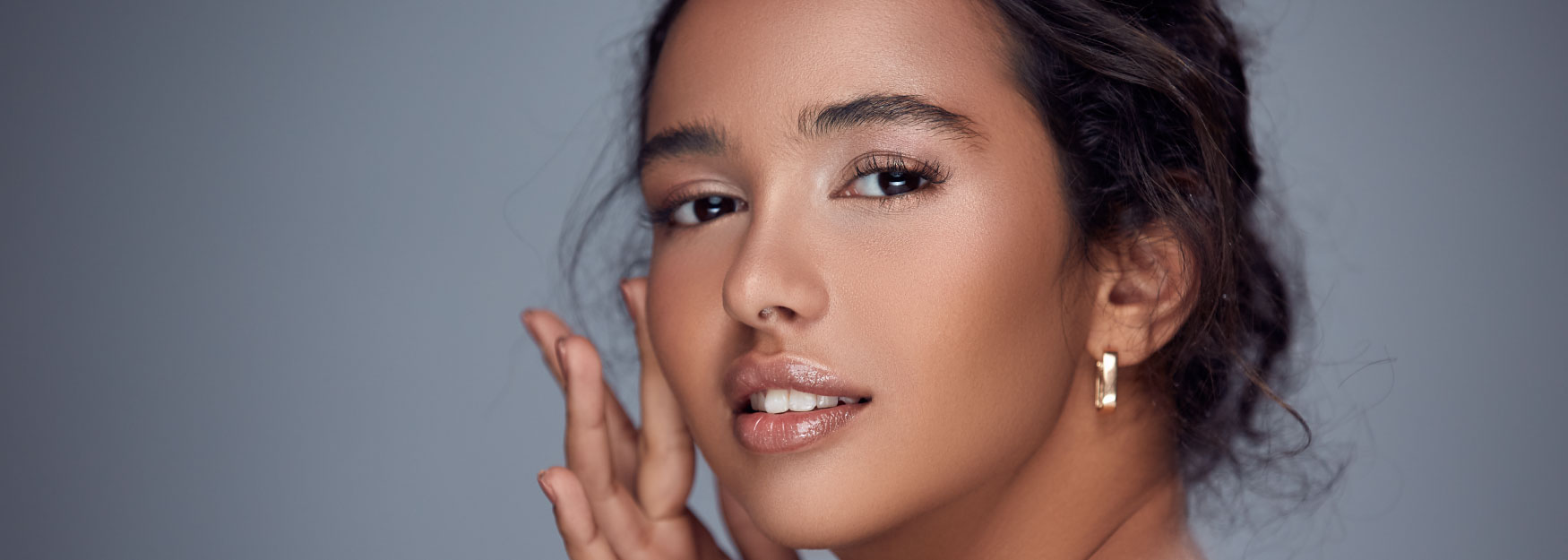
BHRC BLOG
Why Do I Have Bruises Long After Getting Botox for Frown Lines?
Botox is one of the most performed aesthetic treatments in the world, hailed as an easy and effective way to prevent the formation of facial wrinkles and other lines on the face. The procedure has been backed by clinical studies to give you faster results than its more surgically invasive counterparts. Aside from this, Botox only needs a few treatments before the effects start to kick in, which means less recovery time for the patient. However, side effects can still happen, like swelling and bruising.
So why do you have bruises long after getting Botox for frown lines? Normally, this procedure leaves side effects like bruising, bleeding, and swelling, but these should only last for hours or even days after the procedure is done. If you’re still experiencing Botox bruising weeks after your treatment, it could be a sign that something has gone wrong with the injection itself.
Why Do You Bruise After Botox?
Botox treatments are a relatively simple injection that freezes the facial muscles, preventing them from receiving nerve signals and shutting down their movement. Without muscle contractions or muscle movement, your skin remains smooth and less likely to develop wrinkles.
Bruising does happen as a side effect, and it’s not because of the Botox itself, but one of the reactions that the body can have towards an injectable treatment. Particularly, this concerns the injector and the actual needle used in your Botox injection.
To administer a Botox treatment, your injector would have to insert the needle into the muscle layer of the skin, which is deeper than most conventional aesthetic treatments reach. For an experienced injector who’s studied the common entry procedures for a Botox treatment, this shouldn’t be a problem.
The problem occurs when the injector hits a blood vessel with the needle during Botox cosmetic treatments. This can puncture the blood vessel and disrupt blood flow, resulting in a bruise that can take several days to recover from. Since the diameter of the needle used during Botox treatments isn’t very large, bruising shouldn’t be a major concern even if it’s one of the more common side effects.
Given that frown lines are near many blood vessels that can move around during your treatment, bruising may happen more than you’d think. While a skilled injector can drastically lower the odds of this happening, each person has a different facial anatomy, so it’s still a reasonable possibility to have some bruising on the treatment site.
On their own, cosmetic injections like Botox don’t really have much in terms of adverse effects aside from some bruising and swelling in the treated area after a few days after. More serious adverse effects like a bacterial infection or an allergic reaction can occur, but these are few and far between.
When Should I Start Getting Worried?
Overall, any bruising after Botox should disappear within a few days up to a week after your treatment. But if your bruises last for up to 3 weeks, it could be a sign that the blood vessels nicked during your treatment haven’t healed, or you’ve been doing activities that aggravate any bruises that you’ve already had.
Most medical providers generally advise that you get a checkup if any bruising from Botox treatments last for more than 7 days. It’s also possible for your Botox provider to check on any specific bruising you’ll get during your follow-up treatments.
Alternatively, if your bruising is accompanied by other severe symptoms like excessive swelling, bleeding, or paralysis on areas beyond your mouth, then you should also get medical help immediately.
What Can You Do to Avoid Bruises After Botox Treatments?
If it’s not caused by a serious nick to one of your blood vessels, bruises after Botox are usually a result of something that you’ve been doing, drinking, or eating before and after your treatment. Aside from your normal activities, some substances can affect the likelihood of developing bruises during Botox. These substances may even make bruising persist weeks after treatment.
If you want to avoid bruises after your Botox treatment, here are some things that you should (or shouldn’t) do:
Alcohol
Alcohol (and other related drinks) are vasodilators, which are substances that cause your blood vessels to expand and relax. This increases blood flow to the rest of your body – which is responsible for that red flush that you see when getting drunk – and may make your blood vessels more prominent.
This is bad news for needlepoint injections like Botox since patients who do drink alcohol make themselves more susceptible to getting bruised from the injection. This is particularly noticeable on frown lines because they surround the outsides of the mouth, and the blood vessels there can be especially affected whenever you drink.
Avoiding alcohol of any kind will definitely help lower your chances of getting a bruise since your blood vessels won’t be in the way when the Botox is injected around your face. The amount of alcohol that you drink doesn’t matter, as even a small amount can make your blood vessels dilate. If you want to know the safe windows for drinking alcohol after Botox treatments, consult your provider.
Medications
Botox injections can also bruise patients who are taking medications for pre-existing conditions that require substances like blood thinners or muscle relaxants. This is because the needle is more likely to nick any blood vessels with your body’s altered state. Even if it doesn’t, the changed blood pressure makes any injury to your blood vessels more serious, which can increase the visibility and duration of your bruises.
This isn’t limited to maintenance medications – even over-the-counter medications like NSAIDs can drastically increase your chances of getting bruises after Botox. Most bad side effects of Botox can be attributed to the quantities of botulinum toxin interacting poorly with your medication. While this can include common side effects like bruising, it can also extend to more serious complications like Botox migration.






